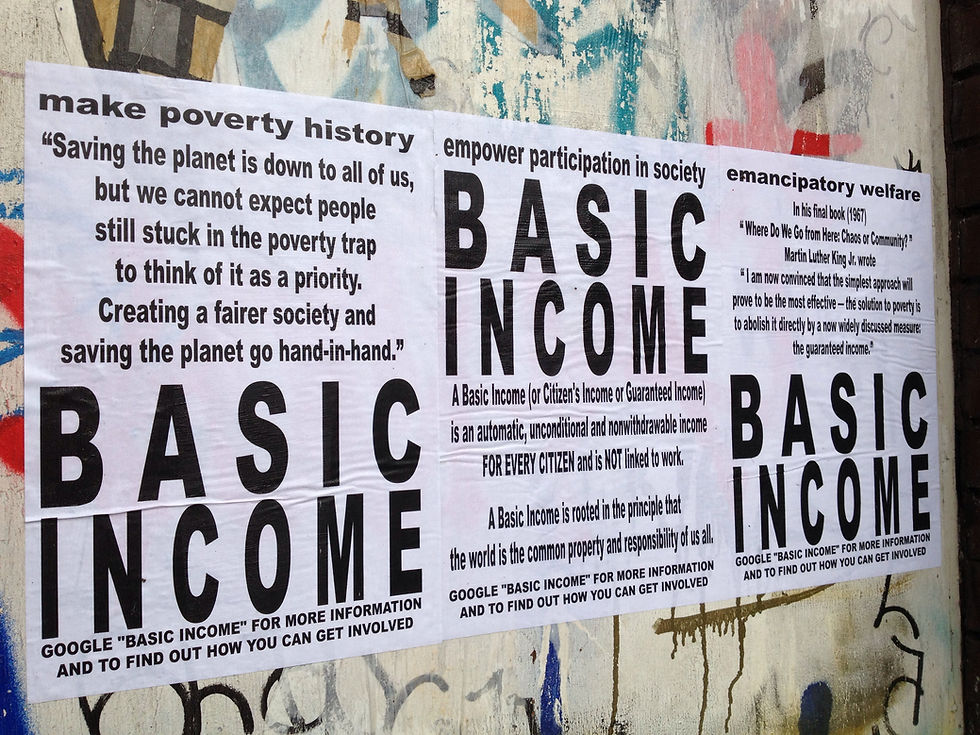Police, Crime, Sentencing and Courts Bill Sparks Controversy
- Hannah McGaw

- Mar 16, 2021
- 4 min read
Updated: Dec 23, 2024
London, UK: The Police, Crime, Sentencing and Courts Bill has passed its second reading after a two-day Commons debate. The debate has been dominated by conversations about women’s protection, and curbs on demonstrations. The “wide-ranging crime crackdown” is outlined in a massive bill that contains 176 clauses; enacting a package of law-and-order pledges that were promised in the Conservatives' 2019 general election manifesto.
Currently, if the police want to restrict a protest, they must prove that it will cause “serious public disorder”, “serious damage to property”, or “serious disruption to the life of the community.” The police can also enforce specific measures on the routes of marches, again to “prevent” public disorder.
If the bill in its proposed state, police chiefs will be able to put more conditions on static protests. They will be able to impose a strict start and finish time, set a noise limit, and apply these rules to a demonstration by just one person.

The BBC explains: “Taken to an extreme, let's say there's an individual holding a protest placard, while blasting out their views on a speaker. If they refuse to follow police directions over how they should conduct their protest, they could be fined up to £2,500.”
The bill will also make it a crime to fail to follow the restrictions placed by the police, even if the protesters have not received an explicit direction or order from an officer. Currently, the police must prove that protesters have knowingly been told to “move on”, before they can be arrested.
What else does the legislation propose?
If passed, the bill will toughen sentencing rules, so that “serious criminals” are incarcerated for a longer period of time prior to their release. Meanwhile, community sentences for “less serious” crimes will be enforced “to address underlying problems in offenders’ lives.” Under the legislation, judges will be allowed to consider jailing child murderers for life. Maximum sentences for low-level assaults against emergency service workers will double to two years, rather than the current minimum of one.
The bill would also grant further powers to more closely monitor terrorists released from prison. The law surrounding sexual offences would change, in order to target abusive adults in positions of trust - including sports coaches and religious figures. Finally, the Bill clarifies that damaging memorials could result in a 10-year prison sentence. This follows the toppling of a statue of slave trader Edward Colston in Bristol last summer.
Human Rights vs The Bill
Ingrained in the Human Rights Act is the right to protest, and express yourself. However, under UK law, that right is not necessarily absolute. Protests can be limited by police if they believe that they have a good reason to impose restrictions on an event to ensure public safety, or to prevent crime.
The Home Office has assured the public that the proposals will respect human rights. However, more than 150 organisations have warned cabinet ministers that handing police powers to crack down on protesters would be “an attack on some of the most fundamental rights of citizens.” The groups, including human rights charities, unions and faith communities, said that the legislation would have a “hugely detrimental effect” on civil liberties, and called for the government to “fundamentally rethink its approach.” Support for the Bill
Senior police officials, including Dame Cressida Dick, the Metropolitan Police commissioner, are particularly keen to lessen the impact of demonstrations such as those of Extinction Rebellion. These 2019 protests brought much of London to a standstill, as
police tried to tackle occupations of roads and bridges.
Opposition to the Bill
The Labour Party, led by Sir Keir Starmer, opposes the measures. Starmer has ordered his MPs to vote against the piece of legislation. Originally, Labour planned to abstain in the vote on the bill's second reading, but will now vote against, in a move deemed “shocking” by many senior Conservatives.
Shadow Justice secretary David Lammy claims the legislation is “a mess.” He says the government is trying to rush through Parliament “poorly thought-out measures to impose disproportionate controls on free expression and the right to protest.”
Amnesty International UK predicts that the passing of this law would result in more scenes like those at the Clapham Common vigil for Sarah Everard, where police broke up a predominantly-peaceful protest using force. Rights of Women, a campaign group present at the vigil, argues that the bill fails to introduce long-awaited measures that could reduce violence against women and girls. Following the recent public outcry sparked by Sarah Everard’s murder, the government says that other parts of the legislation toughen sentencing for serious violent and sexual offences. However, according to Sky News: “Critics say the Police, Crime, Sentencing and Courts Bill will curb civil liberties and do little to protect women.”
During day one of the debate on the ill on the 16th of March, hundreds of protesters caused disruption in Parliament Square, on Westminster Bridge, and outside the Downing Street gates on Whitehall. The Metropolitan Police reported that four people were arrested, and officers issued two fixed penalty notices during the protests in central London. The protesters were encouraged to leave the area, and many chose to do so, however, a number remained in Westminster, the force added.
In addition to complaints from the Labour party about a lack of measures to protect women, Home Secretary Priti Patel faced criticism about attempts to quell protests. Former Prime Minister Theresa May told MPs voting for the bill: “I would urge the government to consider carefully the need to walk a fine line between being popular and populist. Our freedoms depend on it.”

_edited.png)



Comments